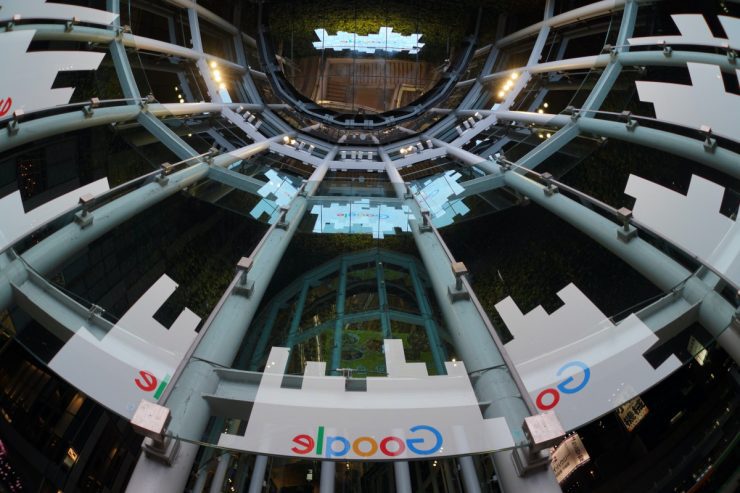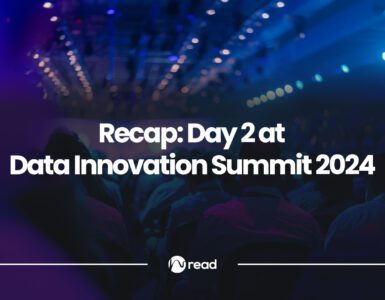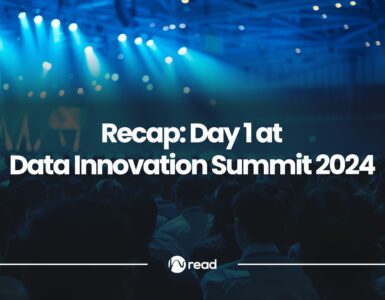Change is the only constant, and changes in technology, digital transformation, artificial intelligence etc., will only continue with dynamics that are difficult to predict. That is why it is crucial to be prepared with knowledge and skills. And when talking about this, it is always said that yesterday’s skills are not enough for today or tomorrow.
That is what Laurence Moroney, AI Advocacy Lead at Google, said when we asked him why education is a critical part of the strategy to make AI more approachable. We had this talk with him, since he is one of the keynote speakers at the 7th edition of the Data Innovation Summit.
In the interview, he presents some of the highlights that he will share during the presentation.
Hyperight: It is such a great pleasure to have you as a Keynote speaker during the Data Innovation Summit 2022. Could you tell us a bit about your professional background and current working focus?


Laurence Moroney: Sure! I lead AI Advocacy at Google — with a mission to inform and inspire the world around the possibilities with AI, and to equip software developers with the latest and greatest in FOSS tools that they can use to train models effectively and responsible, and then deploy them everywhere from the Cloud, to the Web, the browser, mobile devices and microcontrollers! 🙂
Hyperight: The topic of your presentation during the Summit is “Widening Access to AI – Building a Developer Community”. What can delegates expect from this presentation?
Laurence Moroney: I will present on some of the difficulties that people face when wanting to understand the impact AI can have on their business, community, school etc. I will guide them through the hype, show them what it is all about really (and just as important what it is not), and then share results that I’ve seen from changing how we talk about AI, particularly when pushing the emphasis towards what software developers can do to bring AI anywhere.
Hyperight: In your presentation, you will go through your approach and strategy for growing AI in the developer community. Why is this important and necessary?
Laurence Moroney: Developers are the people who will take the ideas and build real stuff out of them that can impact us all. As a result, a properly equipped developer community is key to any transformation, and with AI in particular, this is a huge challenge — it’s a massive mindshift we need to go through — but the potential benefits are enormous.
Hyperight: In one of the takeaways, you provide the prospect that developers will change the world with AI and ML. What do you mean by this?
Laurence Moroney: Think about every technological shift we’ve encountered. In my career, the AI shift is the third, and most likely to be the largest. The first — was the shift towards the internet and web. Think about the business that have come about because of that. Think about the change in careers, and consumer activity that came as a result. The world’s largest-cap companies all came out of that. The second — was the shift to be a mobile-first world, and that was also transformative in many ways. I see the AI shift in the same way. The opportunities for new scenarios — that nobody has thought of yet — will grow the huge companies of tomorrow.
Hyperight: The strategy output is to make AI more approachable for the developer community. How can this be achieved?
Laurence Moroney: By abstracting many of the complexities behind easy-to-use and easy-to-configure APIs. AI is a very academic discipline, and math-heavy. Software developers don’t think in that way — they think in code, and building pragmatic, solid, stable, scalable solutions. It’s been the core of my work to make the tools to build AI available to them in that way.
Hyperight: You mentioned that education is a critical part of the strategy to make AI more approachable for the developers. Why is that so important?
Laurence Moroney: The career of a software developer is one of the best, if not the best ones going. One drawback with this career though is that technology moves so fast, one always needs to stay up to date and to constantly retrain and educate themselves. The skills of yesterday are not the skills of today. AI, from a developer perspective, is so fundamentally transformative in how one even thinks about solving a problem, that it becomes a fundamental reboot in the skills and approach that a developer needs. As such, I want to remove the friction from this as much as possible by delivering APIs that are easy-to-use, and educational material that is pitched at the developer and how they think, to make getting up to speed as easy as possible.
Hyperight: Who are the main stakeholders that need to be aligned, for this to be successful?
Laurence Moroney: Everyone! No matter where you are in the lifecycle of a product, from the creator to the user, the importance of understanding how AI fits in, and being able to cut through the hype, is paramount.


Hyperight: We believe the strategy is already in motion. Can you share some results so far, as well as some lessons learned?
Laurence Moroney: Sure. I can share a lot at the talk, but some highlights — The World Economic forum called out our efforts as skills needed in their ‘Jobs of Tomorrow‘ report; our educational work, particularly with TinyML won ‘Outstanding Research,’ awards etc. The source code used in it to teach AI and ML ended up in the Arctic Source Code vault! My book ‘AI and Machine Learning for Coders’ is a constant #1 seller, as are many others. The underlying framework — TensorFlow — that I use is one of the most popular open source frameworks in the world. We’ve worked with hundreds of Universities to get AI added to their curricula, and have driven amazing DEI programs to widen access to the traditionally underrepresented. I could do a whole conference on the results alone.
Hyperight: You mentioned that you are the best-selling author of “AI and Machine Learning for Coders”. Can we expect another book signed by you in the near future?
Laurence Moroney: I’ve written a follow-up for mobile developers: “AI and Machine Learning for On-Device Development” which is doing really well. My next book is TBD, but I am venturing back into writing fiction again, with an AI-focussed thriller called “Apotheosis” — Some day, I hope to get that published and on shelves! Or maybe a book about using Quantum computing for AI, if anybody wants to read such a thing.
Featured image credit: FLY:D on Unsplash















Add comment